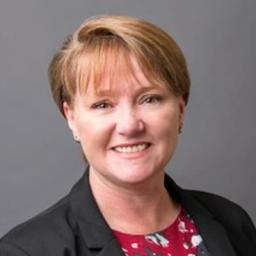Are you monitoring career stages effectively at your firm?
By Sue Beavil
By Sue Beavil, Senior Training & Development Manager, Mayer Brown
William Shakespeare's 'seven ?ages of man' monologue in ?Act II Scene IV of As You ?Like It provides a useful comparison to ?the natural career progression of ?a professional.
'Infancy' could be regarded as school days and 'childhood' as time spent at university or gaining professional qualifications. The 'lover' stage could perhaps be when you are making your mark at the beginning of your professional career, promoting your best attributes and qualities.
As a 'soldier' you would be enjoying additional levels of responsibility and a growing professional reputation, perhaps early management responsibilities. The 'justice' stage sees you joining the partnership or moving into more senior managerial roles and enjoying the benefits of having achieved a certain professional level.
At the 'old age' stage you are likely to be looking to move towards retirement or perhaps to new horizons that value and utilise your years and wealth of experience such as non-executive director roles. 'Extreme old age' comes to us all and is the time when professional development finally doesn't matter any more.
Thinking about which career stage your mentees, protégés, colleagues and team members are at is often the forgotten discussion during practice management planning meetings. It is sometimes even forgotten in conversations between partners about their more junior employees and those seeking to move into partnership.
Knowing where your employees are on their career journey and which stage they are at will help you to focus on their development needs to transition to the next stage. It can also help with your retention of talented and 'salt of the earth' employees: those that you rely on for their consistency and reliability rather than for innovation or exceptional performance.
Professional development
Development needs change over the lifespan of a career and usually begin with technical and professional knowledge, skills and experience. However, there is also an increasing need to develop more business-focused skills, including client handling, relationship building and strategic thinking and leadership capabilities early in careers.
Knowing whether employees are ahead, behind or on track for career progression is useful business management data. Knowing what to do with this data in order to help them move towards the next stage is perhaps even more important.
McCall, Lombardo and Eichinger's 70:20:10 model highlights the need for firms to provide a variety of activities and opportunities to facilitate learning and development. Their model promotes the argument that 70 per cent of learning takes place through direct experience (on-the-job training), 20 per cent through sharing learning with others (shadowing, asking questions, seeking advice) and 10 per cent through more formal input such as courses and conferences.
The key message is that a blend of learning approaches and activities which reflect the different learning styles and preferences of individuals can enable you to develop a strong culture where learning and career development and progression go hand in glove with continuous improvement, efficiency and quality of service.
Stage awareness
'Fit for purpose' is the mantra required to use the employee data effectively. The more you understand the needs and aspirations of your employees, the easier it will be for you to motivate and ultimately retain them as key members of your team.
But, why stop at reflecting on your employees' careers? Make time to reflect on which of the 'seven ages' of career development you are currently on. It will be time well spent and will enable you to make informed and considered decisions about your future and the steps you need to take in order to achieve your goals and ambitions. So, which stage are you at?
Sue Beavil is the senior learning and development manager at international law firm Mayer Brown (www.mayerbrown.com)

